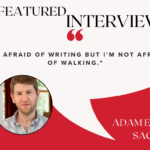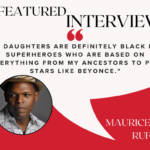Lisa Ampleman: Here at the CR, we swear allegiance to the Chicago Manual of Style; here’s photographic proof of the day that the 16th edition arrived and we vowed to employ the Oxford comma and spell out all whole numbers under one hundred.
As a new assistant editor, I’ve spent the past six weeks memorizing every entry from 1.1  (“Books and journals as the core of scholarly publishing”) to 16.145 (“An index with authors, titles, and first lines combined”), and managing editor Nicola Mason regularly quizzes us. “What’s the difference between ‘innate’ and ‘inherent’?” she’ll ask as she walks in the office on a given morning. “Are scare quotes permissible?”
(“Books and journals as the core of scholarly publishing”) to 16.145 (“An index with authors, titles, and first lines combined”), and managing editor Nicola Mason regularly quizzes us. “What’s the difference between ‘innate’ and ‘inherent’?” she’ll ask as she walks in the office on a given morning. “Are scare quotes permissible?”
Zealotry takes many forms. There are those who skip door to door to spread the good news, and we are similarly driven to share favorite tidbits from our bible. Like Catholic schoolboys noticing that in Jeremiah 13, God compares his people to dirty underwear, we’ve come across some interesting—perhaps even entertaining—proclamations in the manual from the Windy City, which we refer to familiarly as our buddy Chuck:
- In section 8.38, on “Compound nationalities,” Chicago takes a stand on the biased hyphen: “Whether terms such as African American, Italian American, Chinese American, and the like should be spelled open or hyphenated has been the subject of considerable controversy, the hyphen being regarded by some as suggestive of bias. Chicago doubts that hyphenation represents bias.”
- In section 5.176, Chicago puts the smackdown on those who oppose ending sentences with a preposition: “The traditional caveat of yesteryear against ending sentences with prepositions is, for most writers, an unnecessary and pedantic restriction. As Winston Churchill famously said, ‘That is the type of arrant pedantry up with which I shall not put.’ A sentence that ends in a preposition may sound more natural than a sentence carefully constructed to avoid a final preposition. . . . The ‘rule’ prohibiting terminal prepositions was an ill-founded superstition. Today many grammarians use the dismissive term pied-piping for this phenomenon.”
- A meta-moment in section 13.2, “Quotations and modern scholarship”:
Few ideas spring up on their own, and the act of assimilating the words of others is central to modern scholarship. In the words of Jacques Barzun and Henry F. Graff, “Quoting other writers and citing the places where their words are to be found are by now such common practices that it is pardonable to look upon the habit as natural, not to say instinctive. It is of course nothing of the kind, but a very sophisticated act, peculiar to a civilization that uses printed books, believes in evidence, and makes a point of assigning credit or blame in a detailed, verifiable way.”1 The observation holds true in a world where more and more ideas are created, published, shared, and archived electronically.
1. The Modern Researcher, 5th ed. (Boston: Houghton Mifflin, 1992), 273.
Blog readers, what have you come across in the great and all-powerful Chicago Manual?








